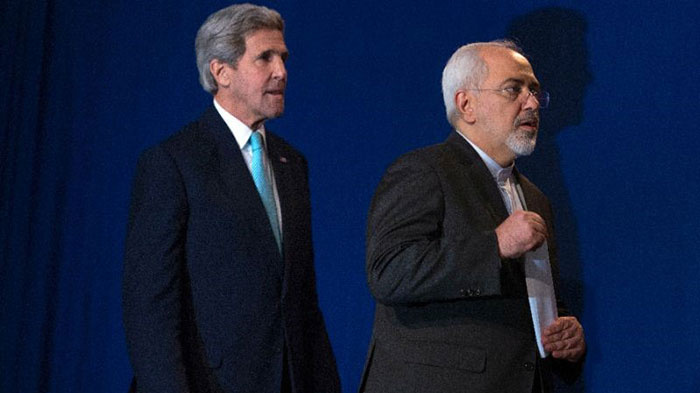Iran’s New Complaint at the Hague Court
Kaveh L. Afrasiabi

Iran has now delivered on its warning to take legal action against the recent US verdicts affecting Iran's assets by filing a complaint against the US in the Hague Court known as the International Court of Justice (ICJ). Although the details of Iran's complaint are not yet public, it can be fairly assumed that it revolves around the principle of sovereign immunity, which is a pillar of customary international law, providing that a state is immune from law suits in the courts of another state.
Fortunately, the weight of international law is on Iran's side, in light of the 2012 ICJ ruling, in the case of Germany versus Italy, that upheld the principle of sovereign immunity. Although that particular case dealt with complaints and demands for compensation for atrocities perpetrated during WWII, the fact remains that precious little has changed in the nature of international law that would permit a different finding in the new Iran versus US case.
For sure, the US and Canada, which has followed the US courts' footsteps by slapping Iran with similar penalties for incidents in Lebanon and Israel, have changed their domestic laws by introducing "exceptions" to the absolute sovereign immunity norm, through which they have enabled themselves to eye Iran's assets in the name of anti-terrorism. But, these domestic laws are still unrecognized in international law and it would be highly unlikely that the Hague Court would spin in US's direction and suddenly reverse itself on a pillar of international law and put a seal of approval on those self-serving exceptions.
Fact of the matter is that the US's label on Iran, as a "leading state sponsor of terrorism," is politically-motivated and is meant to demonize Iran for the hegemonic purposes of US power in the Middle East. In fact, in the latest US State Department report on state terrorism, Iran is simultaneously credited with fighting ISIS and other related Jihadist terrorism. This is tantamount to an implicit acknowledgement of Iran's crucial stability role in the region, underscored by Tehran's active regional diplomacy. Yet, due to the long-standing hostility toward Iran, partially motivated by the intense anti-Iran lobbying efforts of Israel and Saudi Arabia in Washington, the US Government has so far been unable to give Iran the credit it deserves.
Henceforth, looking ahead at the Hague proceedings, it will be interesting to observe US's reaction to Iran's complaint: Will the US consent to the world court's jurisdiction, or will it try to dodge the bullet and file a response questioning the court's ability to hear the case? No doubt, in terms of international public opinion, the US's image would be harmed if it tries to disqualify the Hague Court from considering Iran's complaint. On the other hand, the US must weigh the consequences of losing in an international forum, bound to affect its domestic laws.
While we must await the nature of US's response at ICJ, it is fairly obvious that the time to remedy the growing gaps between international laws and domestic US laws has arrived. The US cannot simply supplant its will power and point of view for the international community, which must operate objectively by higher standards. The Iranian challenge to the US's arbitrary and self-serving "exceptions" to the doctrine of sovereign immunity is, in fact, a healthy one that potentially prevents a further erosion of international norms by hegemonic powers willfully trying to bend internal laws in the direction of their own narrow interests. Indeed, there is no basis for those "exceptions" in the content of international law that governs the relations among nations in today's world. A clue to the arbitrary designation of Iran as a "state sponsor of terrorism," the same US courts that have found Iran responsible for the 9/11 atrocities have exonerated Saudi Arabia of any blames, despite the overwhelming evidence of the Saudi culpability. As a result, no international court can possibly echo US's double standards and even hypocrisy, of whitewashing terrorism by its Middle East allies, for to do so would be tantamount to trashing international law.
On the whole, the Hague Court will likely review Iran's complaint with respect to the issues of jurisdiction, liability, and enforceability, leaning on Iran's side simply because Iran has the upper hands in the realm of legal arguments. A clue to the latter, the whole content of the Iran nuclear agreement, signed between Iran and the world powers, belies the demeaning US label of "state sponsor of terrorism" attached to Iran, by virtue of agreeing to lift all the existing nuclear restrictions after the deal's duration expires, an impossibility if the world powers actually viewed Iran as terrorist (which would prevent those powers from conceding this point due to their domestic anti-terrorism laws). This essentially means that the necessary adjustments in US policies commensurate with the nuclear accord are still lagging behind and need to be addressed immediately.
In conclusion, the US is now at a crucial crossroad: with all its pretensions of legality, it has the choice of either consenting to Hague Court's proceeding with the Iran complaint, and face a distinct possibility of defeat due to the reasons cited above, or try to disqualify the Court, which will still benefit Iran's complaint in the court of world public opinion. Hopefully, the US leaders will choose rationally, and seek a diplomatic resolution of the matter, instead of trying to behave like a rogue superpower promoting legal anarchy in the world.

